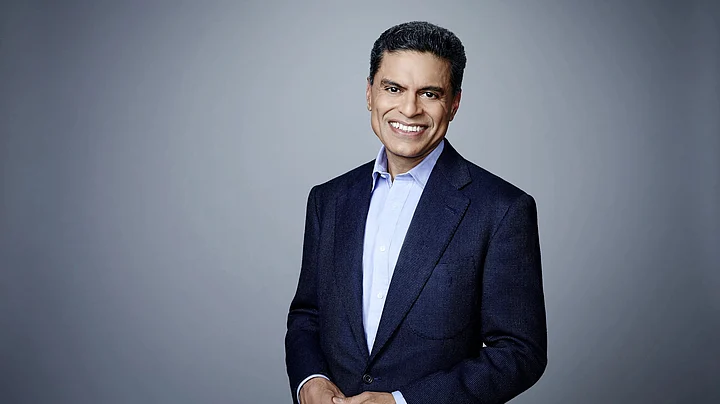After a visit to India, veteran Indian-American journalist and author Fareed Zakaria said that he was struck by the country's optimism in the face of growing global concerns.
During his show on CNN, Global Public Square, Zakaria described India's growth and said that Indians are excited about the future at a time when the rest of the world is trying to navigate a looming recession and soaring inflation rates.
"I’m just back from India and what I saw there was a bullish nation, brimming with excitement. It has some hurdles to clear, but I lay out a path for it to truly become an incredible India."
He added:
“Visiting India this week, I was struck by how different the mood was there compared to much of the world. While people in the US and Europe are worried about inflation and a possible recession, Indians are excited about the future. India is now the most populous country on the planet, and is projected to be its fastest-growing large economy as well at 5.9 per cent this year.”
The political commentator said that he was worried that he has seen such a situation with India before. Narrating a visit to the World Economic Forum in Davos in 2006, he said that he saw India proclaiming it to be the world’s fastest-growing free market democracy.
"In fact, in those year’s India was growing even faster than now at more than 9%. The Indian trade minister confidently predicted to me that the Indian economy would soon overtake China’s. It didn’t quite work out that way. After a few years growth petered out, economic reforms stalled and many foreign businesses that had entered the country with great confidence were disappointed. Some left altogether. As for beating China, despite its slow down, the Chinese economy today is about five times the size of the Indian economy."
However, he added that India has been able to accelerate growth because of a series of revolutions, even though it has remained the second-fastest growing large economy after China. According to Zakaria, these are:
The Adhaar Unique Identification Number revolution
The Jio revolution.
An infrastructural revolution
He said that these three could "truly transform India – but they can do so in the best way by helping in the country's greatest challenge: bringing in hundreds of millions of Indians who are still on the margins economically, socially and politically."
He added that there is an even larger challenge of inclusivity of Indian women, who remain societally and institutionally pressured to not work outside the house.
“A focus on inclusivity would also transform India’s religious tensions, bringing into the fold India’s Muslims, roughly 200 million people, a 7th of the country, who face persistent persecution,” he added.
(At The Quint, we question everything. Play an active role in shaping our journalism by becoming a member today.)
